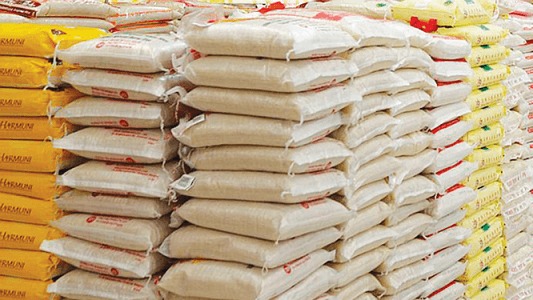Agric ministry denies delaying distribution of rice palliative

The Federal Ministry of Agriculture and Food Security, on Tuesday night, declared that it was not distributing nor delaying the distribution of rice palliative in states.
It was reported on Tuesday (not The PUNCH) that the Deputy spokesperson for the House of Representatives, Philip Agbese, blamed bureaucratic bottlenecks from the agriculture ministry for the delay being experienced by target beneficiaries of President Bola Tinubu’s rice palliative.
The lawmaker also reportedly stated that the rice palliative released by the President to members of the House for distribution to their constituents was not missing.
“Indeed, the President released palliatives to lawmakers through the Ministry of Agriculture. Lawmakers have accepted that they are expecting the rice. Some have received it; some are yet to receive the rice because of the ongoing bureaucratic process in the ministry.
“I think the Ministry of Agriculture has their own contractors and because of the various distances from one state or constituency to the other, not everybody has received, but some lawmakers have received,” Agbese reportedly stated.
Reacting to this in a statement issued in Abuja on Tuesday night by the Director Information, FMAFS, Joel Oruche, the ministry said, “The attention of the Federal Ministry of Agriculture and Food Security has been drawn to stories making the rounds that the ministry is delaying the distribution of rice palliative and wish to state as follows;
“The Federal Ministry of Agriculture and Food Security is not distributing any palliative. The issue under reference concerns constituency projects budgeted for under the 2023 supplementary appropriation and domiciled in the Federal Ministry of Agriculture and Food Security.
“It is common knowledge that funds for National Assembly constituency projects are domiciled in the relevant ministry for purposes of implementation. The implementation process for the 2023 supplementary appropriation is ongoing.”
The ministry explained that constituency projects, in this instance, include a range of needs of the constituents.
It said some of the needs include staple grains and some agricultural infrastructure as determined by respective members of the National Assembly.